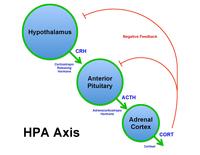
Photo from wikipedia
BACKGROUND Nurses working in hospitals may occasionally be reassigned to other wards for various reasons, for example to cover sudden absences or to support heavier-than-usual workloads. This practice is known… Click to show full abstract
BACKGROUND Nurses working in hospitals may occasionally be reassigned to other wards for various reasons, for example to cover sudden absences or to support heavier-than-usual workloads. This practice is known as 'floating shifts'. AIM To assess how nurses are affected by the stress of working floating shifts, to understand what causes and alleviates this stress and to identify strategies that can be used to reduce stress. METHOD A cross-sectional research study which used an online survey. RESULTS Data were collected from 1,334 nurses in nine Finnish hospitals. Of these respondents, 63% (n=846) had worked floating shifts. Data analysis showed that having worked floating shifts in the past 12 months was not associated with increased reports of ongoing stress. However, respondents identified factors that they found stressful during floating shifts, such as the lack of a work partner. CONCLUSION Nurse managers should consider how floating shifts are administered so that nurses feel supported when working on a different ward or unit. Nurse managers can greatly influence nurses' ability to manage floating shifts.
Journal Title: Nursing management
Year Published: 2022
Link to full text (if available)
Share on Social Media: Sign Up to like & get
recommendations!